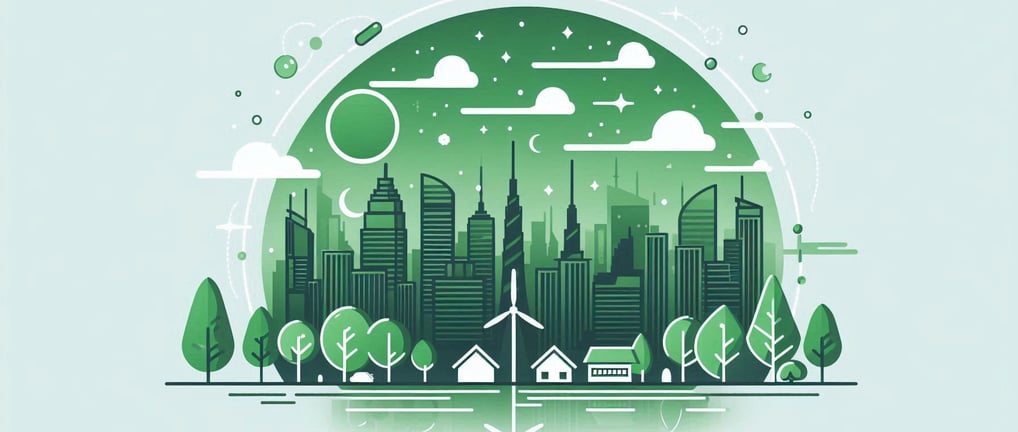The Future of Sustainable Living: Redefining How We Live and Build
As we face pressing global challenges such as climate change, urbanization, and resource depletion, the concept of sustainable living has shifted from a desirable lifestyle to an essential necessity. The future of sustainable living lies in embracing innovative approaches to urban design, technology, and individual responsibility. Here's how the world is moving toward a more sustainable way of life:
SUSTAINABILITY
Hosam Zidan
11/13/20242 دقيقة قراءة


1. Integrating Nature into Urban Spaces
Modern cities are reimagining urban landscapes by incorporating green infrastructure such as vertical forests, rooftop gardens, and public greenways. These designs not only combat the urban heat island effect but also enhance air quality, reduce stormwater runoff, and promote biodiversity.
2. Smart and Energy-Efficient Homes
Technologies like smart thermostats, AI-driven energy management systems, and net-zero energy buildings are transforming residential architecture. Homes of the future will generate their own energy through solar panels, wind turbines, and geothermal systems while using advanced insulation and thermal mass materials to reduce energy consumption.
3. Urban Agriculture and Food Security
The rise of vertical farming, hydroponics, and community gardens within urban centers will redefine food production. By reducing the need for long-distance transportation and using controlled environments to maximize yields, cities can ensure fresh, local produce is available year-round.
4. Circular Economy in Construction
The future will see a shift from the traditional linear construction model to a circular economy approach. Materials will be designed to be reused, recycled, or biodegradable. Technologies such as 3D printing with sustainable materials and modular construction will minimize waste and energy consumption.
5. Water and Waste Management Innovations
Membrane bioreactors for wastewater treatment, rainwater harvesting systems, and greywater recycling will become standard features in sustainable living. Communities will adopt closed-loop systems to manage resources efficiently, reducing dependency on external water sources.
6. Sustainable Mobility and Reduced Carbon Footprints
The rise of electric vehicles (EVs), shared mobility solutions, and urban planning centered around walkability and cycling will reduce reliance on fossil fuels. Future cities will feature interconnected public transit networks powered by renewable energy.
7. A Culture of Sustainability
At the heart of sustainable living is a cultural shift. Governments, businesses, and individuals must prioritize eco-conscious decisions—from choosing sustainable materials to adopting minimalist lifestyles. Education and awareness campaigns will play a pivotal role in fostering this mindset.
The Role of Architects in Shaping the Future
As architects and urban planners, hz studio believes in designing spaces that balance human needs with environmental stewardship. From energy-efficient homes to community spaces that encourage sustainable practices, our designs focus on creating a harmonious future for generations to come.
The future of sustainable living isn’t just about surviving—it’s about thriving in balance with nature. By combining innovation, design, and a commitment to sustainability, we can transform the way we live and build for a better tomorrow.


